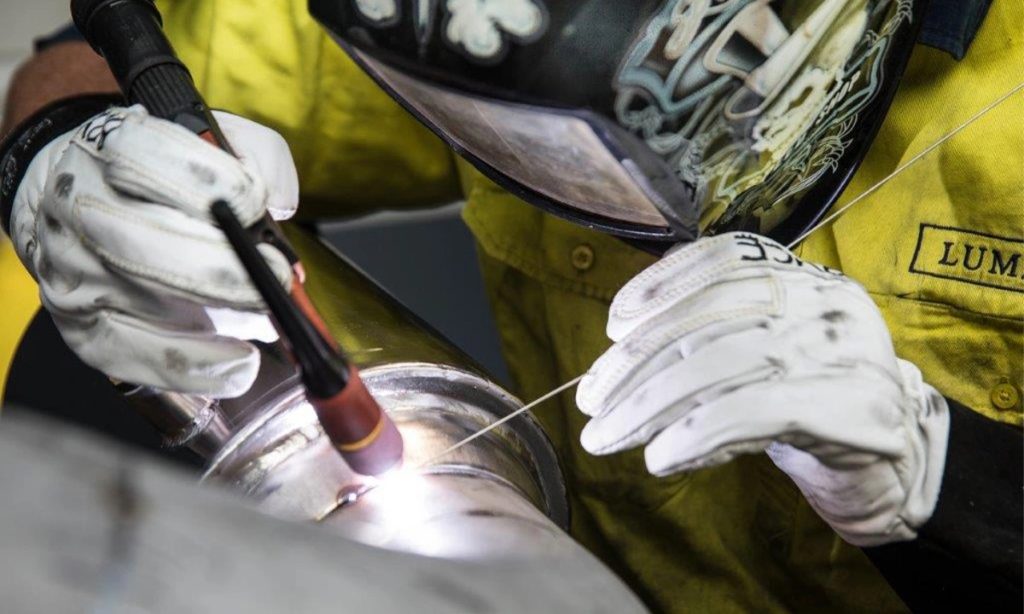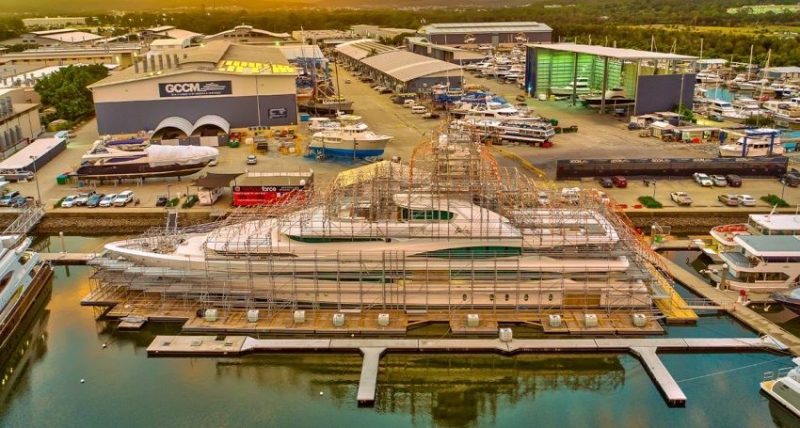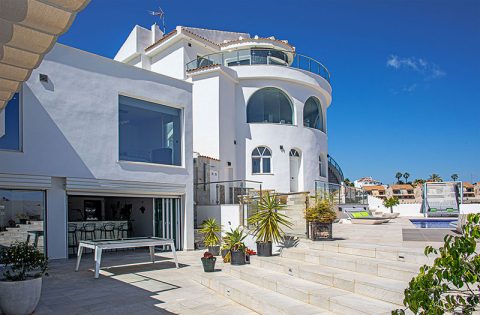With a flood of new boats of all sizes being delivered to buyers in Australia, arriving for refits, or just visiting through the Gold Coast, the training academy will be the first in Australia to be established at a shipyard.
The academy at the Gold Coast City Marina and Shipyard (GCCM) will begin turning out an in-demand pipeline of skilled marine trades workers to fill labour shortages across the $80-billion industry, from marine labourers, to trade assistants, trimmers, fabricators, painters, electricians, carpenters, shipwrights and plumbers.
GCCM CEO Trenton Gay said the marine sector had grown at an unprecedented rate, offering a massive spread of sophisticated and innovative job opportunities.
“The marine industry is fast-paced, multi-layered and ever-evolving so for those seeking out new career paths, the academy is an ideal way to get the right advice and appropriate training,” Gay said.
“Australia is being recognised internationally now for the quality of marine trades we offer, so it is important that we enhance the flow of job opportunities and talent within the industry.”
Close to 40 superyachts have been brought into Australia in the past year, compared to around 10 superyachts in a “normal” year, with the Gold Coast and Queensland a key gateway to the influx.
Among the lavishly appointed arrivals was 68-metre Lady Christine superyacht, worth $82 million, that arrived at the Gold Coast for a multi-million-dollar, six-month facelift.
 Owned by British billionaire, Lord Irvine Laidlaw who is a former member of the House of Lords and founder of the Institute for International Research, the craft was also used by George Clooney and Julia Roberts for their latest blockbuster, Ticket to Paradise, being filmed on the Gold Coast and around Queensland.
Owned by British billionaire, Lord Irvine Laidlaw who is a former member of the House of Lords and founder of the Institute for International Research, the craft was also used by George Clooney and Julia Roberts for their latest blockbuster, Ticket to Paradise, being filmed on the Gold Coast and around Queensland.
The GCCM is part of the 250-hectare Gold Coast Marine Precinct, the largest refit and repair yard in the Southern Hemisphere. More than 90 businesses operate from the precinct, covering all aspects of marine refit, maintenance, and construction for vessels.
Local employment and training specialists, DGT Employment and Training, will head the GCCM Marine Trades Academy program to deliver tailored support for the on-site businesses and deliver skilled marine trades workers to fill labour shortages globally.
The GCCM Marine Trades Academy will operate alongside a new TAFE Queensland Marine Centre of Excellence, also due to open in the Coomera marine precinct in early 2023.
DGT Employment and Training CEO Kris McCue said demand was currently outstripping supply for qualified marine trades, making the new academy a much-needed conduit between businesses requiring a skilled workforce and trainees or workers wishing to enter or advance within the industry.
“The pathways created will enable people seeking traineeships and apprenticeships in particular to complete work experience with leading marine businesses located in the shipyard to get the start they are wanting in the industry,” McCue said.
“We’ll be ideally located to connect the right candidates with the right opportunities to service an expanding market and furthermore, create a workforce with appropriate education and/or safety and other skills required by GCCM businesses.”
According to the Australian Institute of Marine Science, Australia’s marine industry contributes more than $80 billion annually to Australia’s national economy. In 2021, the industry directly employed more than 27,000 people.
On the back of rising wealth, the global market for luxury craft has continued to surge and is projected to jump to US$84.7 by 2027. This is up from US$64.1 billion in 2020 when the Covid crisis began, according to the latest Yacht Industry Global Market Trajectory and Analytics report.
The Gold Coast continues to stake its claim as a global “superyacht capital,” with Australia’s largest superyacht berth recently opened at Southport Yacht Club.
Gay said the Gold Coast continued to develop as a marine industry centre of excellence to support the booming billion-dollar global superyacht trend.
GCCM was currently working to deliver infrastructure including a 20-hectare Stage 2 facility that would offer the capability of lifting vessels up to 1400 tonne, Gay said.
“GCCM’s ongoing success is highly dependent on the skills and experience of our trades.
“It’s vital that we continue to maintain the workforce of strong and competent trades that we have been globally recognised for since we first opened the gates over 22 years ago,” he said.











